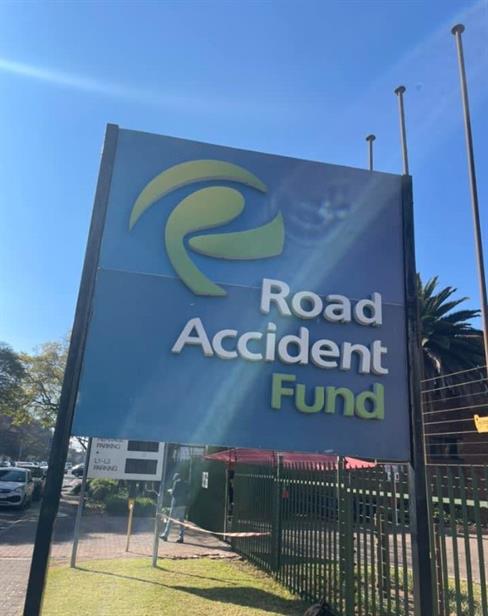News
Inside the RAF Scandal: Lavish Spending, Bucket Hats, and Billions in Debt While Crash Victims Wait

While thousands of South Africans still wait years for their road accident compensation, the Road Accident Fund (RAF) meant to protect them, appears to be in financial and ethical freefall. Despite pulling in over R48 billion annually from the national fuel levy, the fund now sits on a staggering R518 billion debt, with assets worth only R33 billion.
It’s a story that reads more like satire than public policy: a taxpayer-funded institution drowning in luxury spending, weak accountability, and spiraling dysfunction, all while the very victims it was created to serve are left desperate and unheard.
When a Bucket Hat Costs R48,000
During a parliamentary Standing Committee on Public Accounts (SCOPA) session, MPs were left visibly shocked after hearing how RAF spent taxpayer money. Among the most eye-popping revelations: a bucket hat costing R48,300, purchased through a company called Dzinge Productions.
RAF spokesperson McIntosh Polela tried to explain it away, saying the invoice “represented multiple hats” despite listing only one, but that did little to quell public outrage. On social media, South Africans mocked the explanation with memes of “Gucci-grade RAF merch,” turning what should be a national scandal into a symbol of state absurdity.
It didn’t end there. The RAF also spent R8,180 per golf shirt, R110,000 per podcast episode, and R85 per branded water bottle, all while victims of road crashes continue to wait months or even years for basic payouts.
Billions in Bonuses While Victims Starve
According to parliamentary records, RAF splurged R1 billion on communications and advertising over just two years, with R650 million funnelled through two companies: MediaMix360 and Dzinge Productions. At the same time, R231 million went to staff bonuses and nearly R2 million was spent on executive protection.
Meanwhile, the fund’s 2023/24 annual report paints a grim picture: the number of registered claims has collapsed by 74%, from 303,695 in 2019/20 to just 79,377 in 2024. Personal injury claims fell even more sharply, dropping 82% in the same period.
For many South Africans, these numbers aren’t abstract. They represent families who’ve lost breadwinners, young people left disabled, and widows waiting for justice that never comes.
Auditor-General Flags “Material Irregularities”
The Auditor-General of South Africa (AGSA) found R95 million in irregular, wasteful, and fruitless expenditure within the RAF, funds that could have paid legitimate claims.
This includes:
-
R6.4 million in duplicate payments
-
R36 million in irregular procurement in 2024/25
-
R52.7 million in unassessed prior-year spending
Worse, the AGSA said the full extent of irregular expenditure couldn’t be determined because RAF management had not even assessed the problem, a glaring violation of the Public Finance Management Act (PFMA).
The report also uncovered unauthorised banking changes and weak verification systems that led to millions in losses.
OUTA: “Systemic Rot and Weak Oversight”
Civil society is not holding back. Wayne Duvenage, CEO of the Organisation Undoing Tax Abuse (OUTA), said the RAF’s crisis is not an accident, it’s the result of years of systemic failure and poor leadership.
“We see too many instances of disregard for state funds, excessive bonuses, overpriced contracts, unnecessary travel, and weak oversight from boards that rubber-stamp CEO decisions,” Duvenage said.
He warned that repeated qualified audits and reappointments of failed CEOs show just how toothless state entity boards have become.
“It’s a direct breach of the PFMA. The fact that some of these executives are being rewarded instead of investigated tells you everything about the culture of impunity.”
SIU Investigation Hits Roadblocks
Adding to the pressure, the Special Investigating Unit (SIU) has launched a probe into the RAF over duplicate payments, irregular procurement, and financial mismanagement.
But even the investigators are struggling to do their job. According to the SIU, RAF officials have refused to cooperate, with some executives allegedly ignoring lawful subpoenas, forcing the SIU to open a criminal case against one RAF executive.
“Requests for information are either ignored or delayed beyond the deadline,” the SIU noted, calling out the fund’s obstruction.
Victims Left Waiting, Trust Left Broken
For many ordinary South Africans, the RAF’s collapse is more than a financial scandal, it’s a betrayal. The fund was established to help victims rebuild their lives after tragedy. Instead, it has become another example of public institutions prioritizing image and insiders over impact.
The memes about R48,000 bucket hats might fade, but for thousands of accident survivors, the consequences are no joke. Their compensation, meant for surgeries, rehabilitation, or school fees, is stuck in a bureaucratic nightmare.
As one social media user put it:
“RAF isn’t broken by accident. It’s been hijacked by greed.”
A System on the Brink
The RAF’s troubles mirror a broader crisis in South Africa’s state-owned entities, a pattern of weak governance, political interference, and financial mismanagement that leaves citizens footing the bill.
Without urgent reform, oversight, and independent leadership, the fund may soon reach a point of no return. And when that happens, it won’t be executives or board members who suffer, it’ll be the people lying in hospital beds, waiting for justice that’s decades overdue.
{Source: IOL}
Follow Joburg ETC on Facebook, Twitter , TikTok and Instagram
For more News in Johannesburg, visit joburgetc.com



























